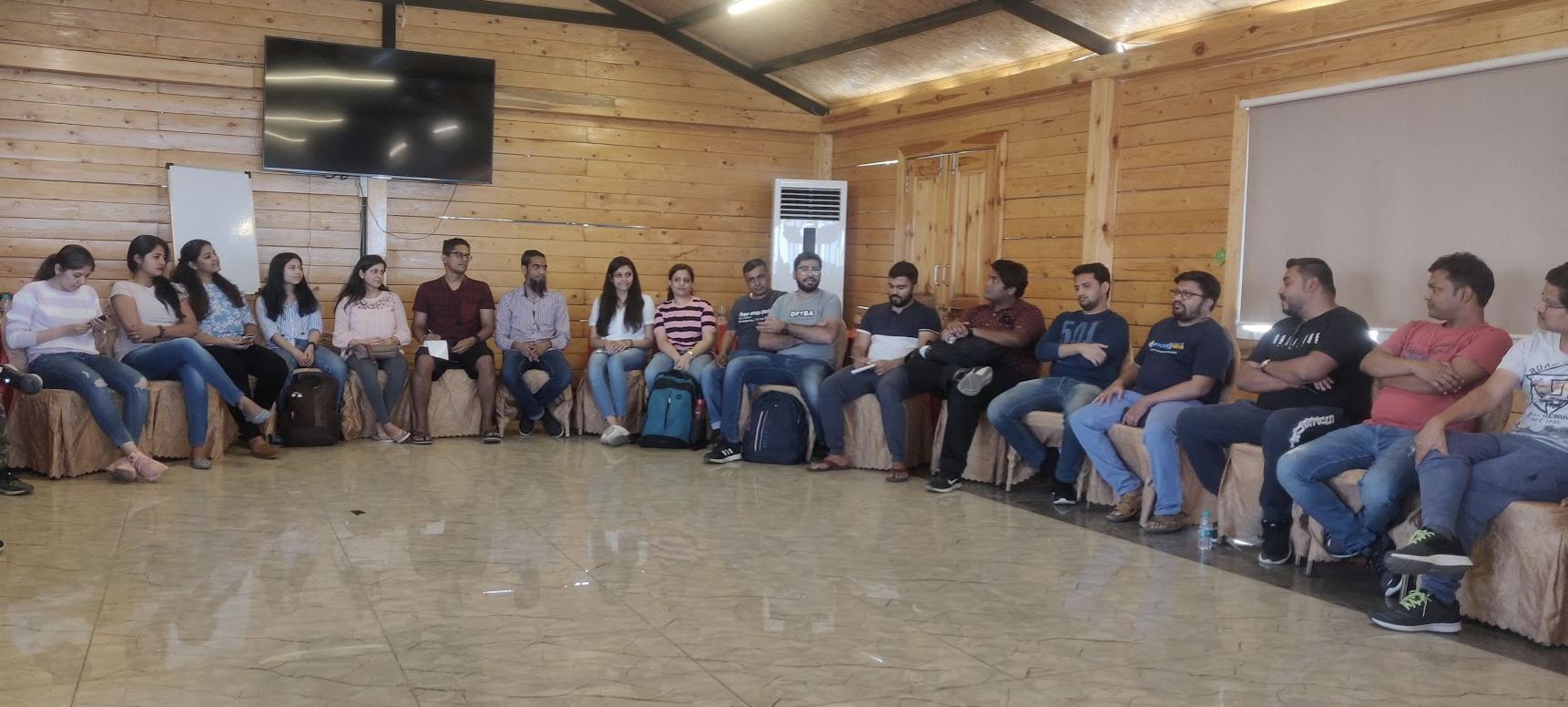Democracy has been enshrined as one of the core values of Frappe and we are trying our best to be. As of 2021 we are still an outlier. Most companies are not democratic, they are run as hierarchical command-and-control organizations like armies. Most legal powers of ownership are vested in the shareholders and they appoint a board of directors who then hire employees to manage and operate the company.
Democracies are people first. Equal rights are vested in each individual and expressed via voting or other mechanisms. In a democratic company, it is the people who come together to form a unit and shareholders can be considered as suppliers of capital. In such a case, while the company assets continue to be owned by the shareholders, the team essentially has the power to manage and operate. While such a model does not have a legal backing, a company can choose to operate as a democracy. It provides an interesting balance of power between the shareholders and the people who work in the company.
Why democracy?
Democracies are a lot more human centric than traditional structures. Here each member enjoys equal rights. Such a member is expected to feel a lot more empowered and motivated compared to someone who is just exchanging their time and labour for money. An empowered individual can achieve a lot more than someone who is merely following instruction or is working for their next paycheck.
Inspiration can be drawn from the French Revolutionary Wars of 1792-1802. After the French Revolution, the abolition of the monarchy and formation of the republic, France was considered to be ripe for invasion by its neighbours. In a series of dramatic wars, the French people came together in the name of liberty, equality and fraternity to not only stop the invasions, but also took over much of continental Europe defeating every major power in the region like Prussia, the Holy Roman Empire and the Ottomans (except Britain). These wars changed the history of Europe and arguably the world. To quote Wikipedia “18th-century armies – with their rigid protocols, static operational strategy, unenthusiastic soldiers, and aristocratic officer classes – underwent massive remodeling as the French monarchy and nobility gave way to liberal assemblies.” Every major power after the French Revolution made a decisive shift towards a more liberal democracy where the power was slowly but surely vested in the people, not just an aristocratic class.
Democracy and speed of decision making
One common argument against democracy is that it is slow as it takes time to build consensus. This is not wholly true. Decision making at every level does not have to be consensual. We can apply the principle of subordination here, where decisions that impact a group or individual only should be taken by that group or individual. Only decisions that impact others need consensus. At Frappe, we apply this principle religiously and everyone has as much autonomy as there can be while trying to maintain some sort of consistency. Only decisions that are impactful for the whole company are taken democratically.
Also taking decisions requires time and energy for research and discussion, and not everyone will have the same kind of interest or energy to participate in global discussions. So we have a representative body that does deep discussions on issues and then votes on them. We call this the Leadership Council. The Leadership Council is an elected body that is created to discuss company wide issues and vote on them. Many times, the decisions can also be voted via referendum by the entire company. Planning, systems, compensation, budgets fall under the jurisdiction of the leadership council.
Establishment of democratic way of working
Over the last year, especially since the beginning of the pandemic, we have started to vote on important decisions on our weekly team call. All major decisions like should we entertain an acquisition offer or should we officially have rules for affirmative action have been on vote. There is rigorous debate on each topic with live voting. It has been seen that on hearing both sides of the debate, people also switch their votes.
Slowly but surely the idea of one-person-one-vote has been instituted in Frappe over the past year. Using the mantra fake it till you make it, Frappe has slowly been developing a more democratic culture. The rigorous weekend debates are often the highlight of the week. People have begun to listen more and understand other points of views.

Leadership Council Elections
Taking this to the next level, last week (June 2021) we had our first elections for the Leadership Council. When the Leadership Council was first proposed in late 2020, there were few nominations and the seats for the first council were filled by inviting people. Seeing the impact of the first edition of the Leadership Council, especially when it came to oversight over compensation, 16 people nominated themselves for 9 seats for the second edition of the Leadership Council.
Each candidate had to come up with a “manifesto” of what they would contribute to the council during their term of one year. On election day, every candidate had to make a pitch on the team call and were asked questions. Some of the questions were very rigorous, where the candidate's positions on decisions of the past and democratic way of working were scrutinized. Their understanding of their role and jurisdiction of the council were also questioned. Overall it was way more contested than anyone ever expected.
Finally an elected council of 10 (there was a tie) was formed. The results were very interesting. Candidates who had stronger reputations and better prepared were elected. To be leaders in a democracy you need people who are visionary, energetic and articulate.
Going forward
Democracy at Frappe is very much work-in-progress yet becoming stronger by the day. During my scrutiny, people asked me pointed questions on how I planned to reduce my own influence in decision making. Personally for me, the democracy experiment is the most interesting thing we are doing right now. While the first phase of Frappe was all about building the product, this phase is all about building the team. Both are being built on the core principle of freedom.
We are seeing a surge of employee activism throughout the globe. The equation between labour and capital is shifting in the favour of labour. Especially in a highly knowledge driven company like Frappe, where people are the capital, this model seems like a great way to work. Personally as a shareholder and CEO, it takes away a lot of pressure to make the right decision. It is too early to say whether this experiment is successful, but it has been a very rewarding journey so far!




·
It is indeed an interesting initiative to hear about within a company.
Unless you are deeply ingrained in the process of Representational, Term-based implementation of Democracy, I think there is value in taking a look at Liquid Democracy. Or if you have already, I'd be interesting to find out for what reasons it would be dismissed.
·
Nice initiative.